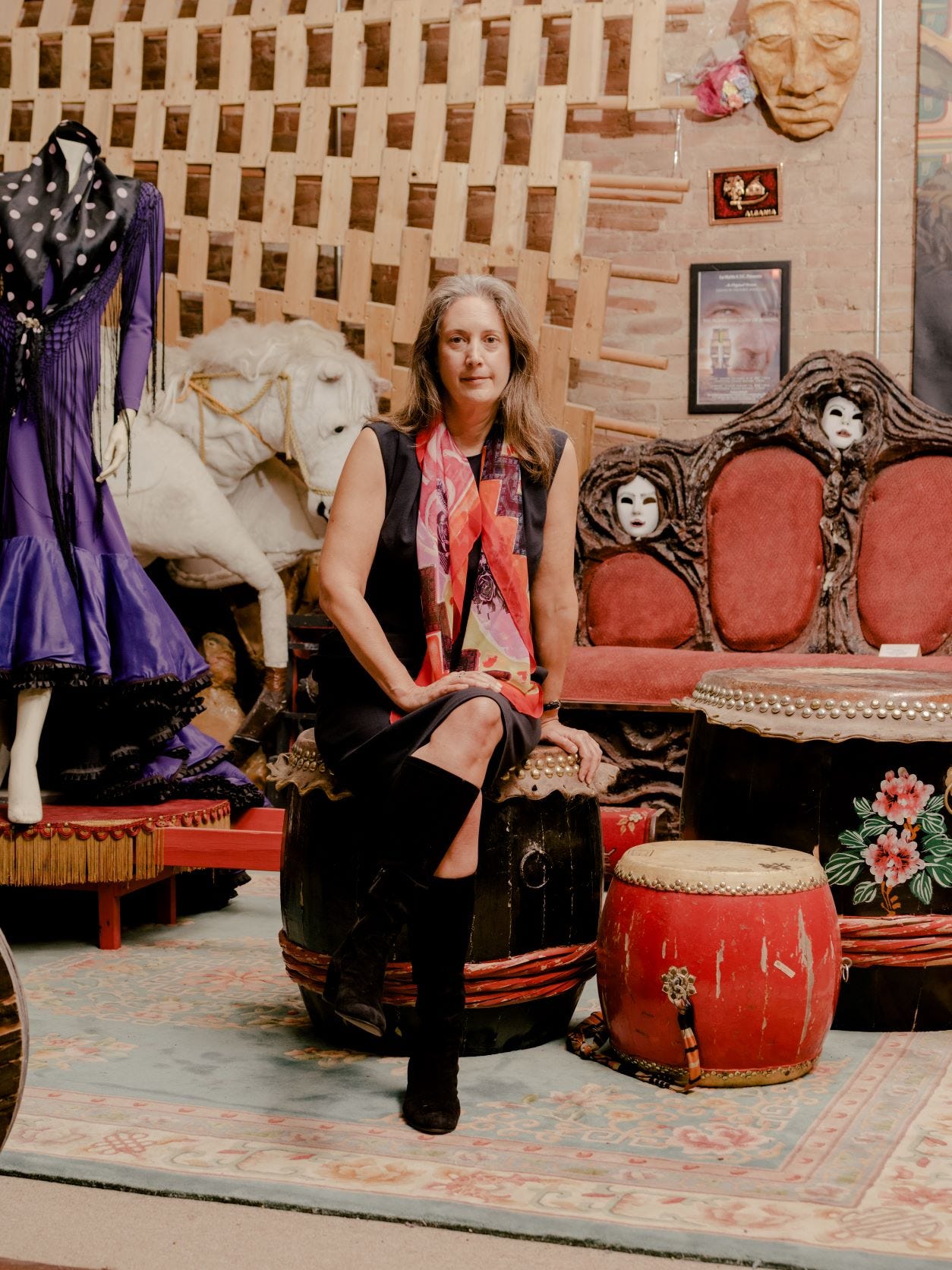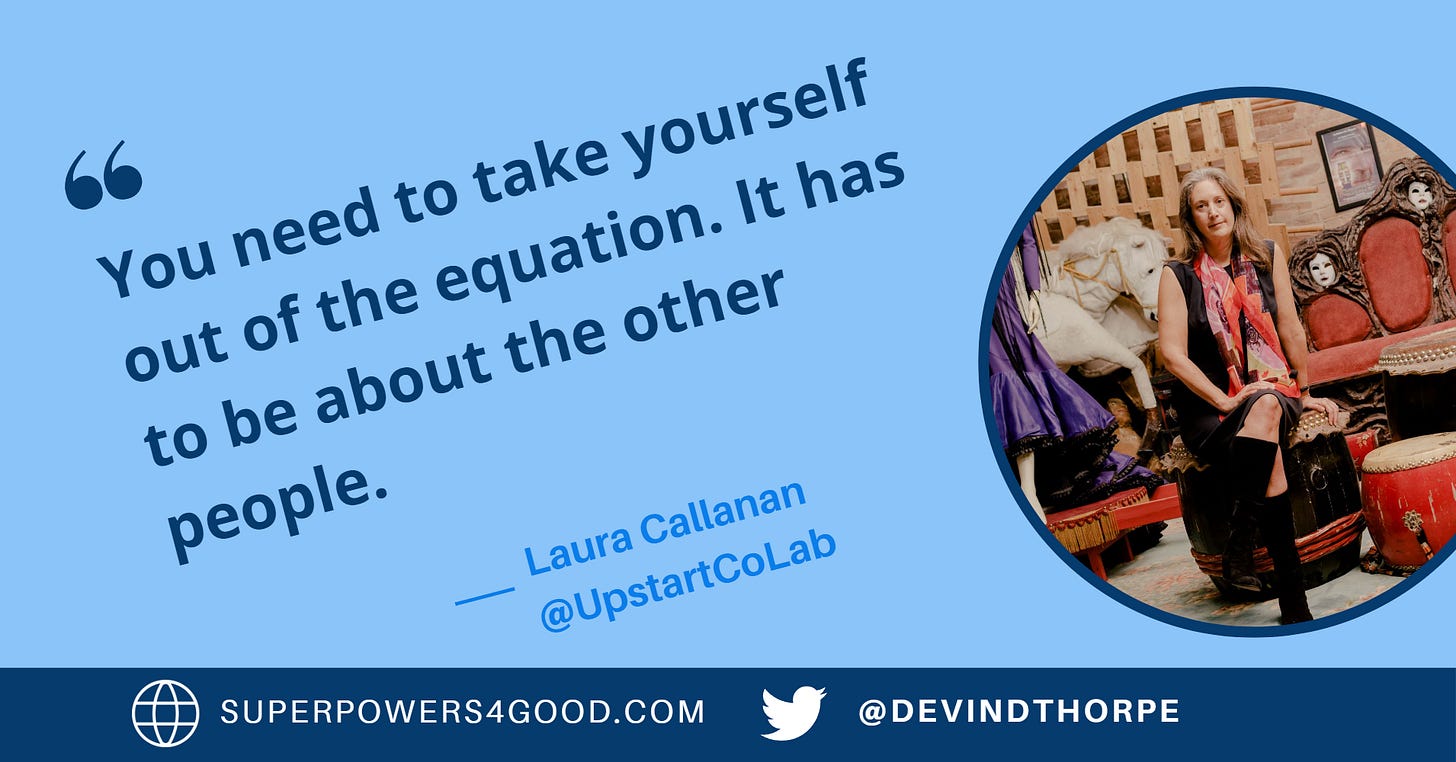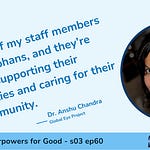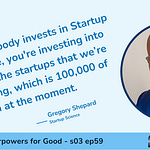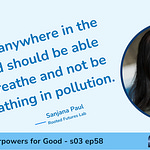Devin: What do you see as your superpower?
Laura: Oh, my superpower. When I'm with artists, I'm the business person in the room, the investment person in the room. Now, the impact investing person in the room, when I'm with impact investors, management consultants, these more financially oriented types, I'm the representative of creatives and creativity and creative economy, and I'm the artist whisperer. I'm the person who has that perspective on what's happening in the creative sector. So, if I have a superpower, Devin–and I appreciate you implying that I necessarily do–If I have a superpower, I think it's that bridging role and the ability to, whether you call it code-switching or how we talk about this ability to move between cultures and groups and sectors in a constructive way, right, in a way that helps to connect the dots.
Upstart Co-Lab is “disrupting the way that creativity gets funded,” says its founding partner Laura Callanan. “We're moving money to creative people who make a profit and make a difference.”
“I believe creative people solve problems,” she says, explaining the foundational premise of the enterprise. “I am committed to ensuring artists, designers and other creatives have access to what every social entrepreneur needs: capital, markets and networks.”
Laura and her team worked to understand the creative economy and how it relates to places, identifying 145 creative industries.
“We realized that the definition of the creative economy is a real illustration of the culture and heritage of a particular place,” Laura says. “Just as an example, Michigan does not include food when it defines its local creative economy, but Louisiana does for all the reasons you could imagine around Creole culture and New Orleans.”
The team identified three big categories for focus:
Ethical fashion
Social impact media
Sustainable food
Using the final category as an example, she explains how Upstart Co-Lab approaches a space in a unique way:
A lot of impact investors think about sustainable food. They think about human and planetary health. They think about smallholder farmers in sub-Saharan Africa and how they can grow crops more effectively. But for us, with our focus on art, design, culture, heritage and creativity, food was around the food products and the experiences that conveyed culture and heritage and built community.
Upstart has partnered with investment crowdfunding portal Honeycomb Credit. Laura notes that 90 percent of the businesses on the platform are creative industries, including restaurants, food trucks, florists, designers, jewelry makers and more.
“We love the idea that this was a crowdfunding vehicle that could make loan capital available to brick-and-mortar community-based businesses, and that most of those businesses already on the platform were in the creative industries was a bull's eye for us,” she says.
A strategy fell into place. “As we got to know the folks at Honeycomb Credit, they described an ambition that they had to find a way to bring institutional capital onto the platform to amplify the wisdom of the crowd,” Laura says.
“George Cook, one of the founders of Honeycomb Credit, and his team they're fabulous in terms of understanding community banking. They're fabulous in terms of being able to underwrite credit risk,” she says. “But the world of philanthropy and big foundations doing impact investing was a little bit new to them.”
“The foundation world is one that I definitely know,” Laura says. “So we at Upstart were able to work closely with the team at Honeycomb to take the kernel of their idea, what they call a loan participation fund and make it possible.”
Bringing institutional capital to impact crowdfunding is vital for the growth of space and the economy it supports. Individuals can signal support for great ideas, but institutional capital can make a massive difference to the entrepreneurs raising money.
For the past several years, Upstart Co-Lab has been advising its member community of ten families and foundations. Many are focused on supporting places.
Laura shared the message she gave her foundation members:
Look, you're always asking us for something you can do in Chicago, something you can do in Alabama, Florida, Denver, these places where you work; here is a perfect example of an opportunity that is community oriented. You can focus on your city, your region. And it's very aligned with what we are working on together, which is mobilizing impact investment capital for the creative industries, the creative economy throughout the United States.
“The Jesse Ball DuPont Fund, which is based in Jacksonville, Florida, the Souls Grown Deep Foundation, which is committed to nine southern states, and the A.L. Mailman Foundation have already put money on the platform at Honeycomb Credit,” Laura says. “They're investing in these small but sturdy, community-based creative economy businesses.”
This strategic relationship, which is beginning to have impact already, is just one of the things Upstart Co-Lab has accomplished since its founding in 2016. It has “mobilized about $20 million of capital for the creative economy from impact investors,” she says.
Laura says Upstart Co-Lab is just getting started.
“We've set a very audacious goal of raising $100 million for America's inclusive creative economy,” Laura says. “We will be investing this capital in both funds that are impacting sustainable funds that have a strong exposure to creative industries, as well as direct investments into seed and early-stage companies in industries like film and TV, video games, fashion—those types of creative industries.”
Laura uses her superpower, her unique ability to bridge disparate communities, to connect impact investors with creatives.
How to Develop Bridging Communities As a Superpower
It is hard to imagine people with more distinct mental frameworks than artists and investors; Laura connects them by relating effectively to both.
Laura explains how it works, built upon her impressive resume. “I think it’s my comfort and ability to be at a McKinsey & Company, be at a Rockefeller Foundation, work for the United Nations, be the senior deputy chair at the National Endowment for the Arts—all super duper fancy and important places, but at the same time, put on jeans and sneakers and go visit an artist in their studio and learn from them and try to get inside their head a little bit and appreciate how they see the world.”
Laura recently used her ability to help match an entrepreneur with funding. David Belt at New Lab @ Brooklyn Navy Yard is working in a high-impact way but wasn’t articulating the impact in the formal sort of way that impact investors want. Laura was able to help him better frame his work for the investors and help the investors see the impact at the same time, resulting in funding.
Laura offers two key points of advice for bridging disparate communities in the way she does.
First, focus on the communities, not yourself. “You need to take yourself out of the equation,” she says. “It has to be about the other people.”
She illustrated this point with her work:
From where I sit in terms of what motivates me to lead Upstart Co-Lab, I'm motivated by my belief in the power of artists, designers and creative people to come up with phenomenal solutions and be able to execute on them in a way that I am not capable of.
I need to believe that they have an ability, a capacity, an insight, a set of aptitudes, talents and instincts that I don't have and that I'm wanting to put my energy, my time, whatever skills I have, whatever network I have in service of helping these creative entrepreneurs be able to scale and sustain their work in the world. So it's got to be about them, not about me.
Second, you’ve got to develop expertise. “You've got to do the work,” she says. “I've got to really know about investing. I can't sort of, you know, half-ass it.”
She concludes with this observation, “If I'm going to be successful in bridging these two worlds, I need to be seen as legitimate by each world in order to be seen as a trusted interlocutor to bring the two sides together.”
You can develop the ability to bridge disparate communities by following Laura’s example and advice, making it a superpower that enables you to do more good.





